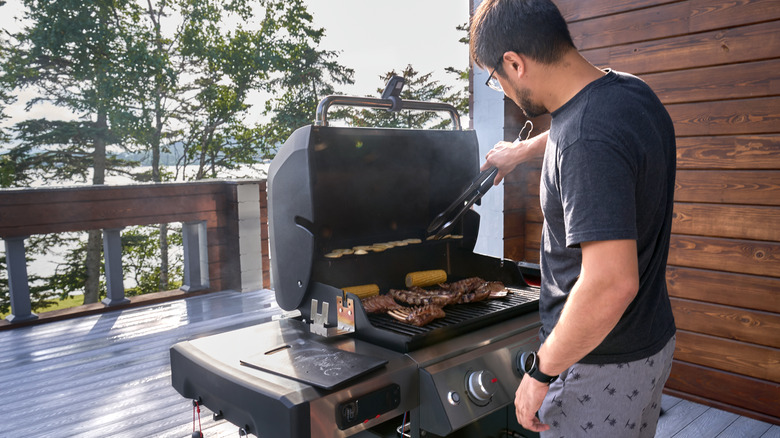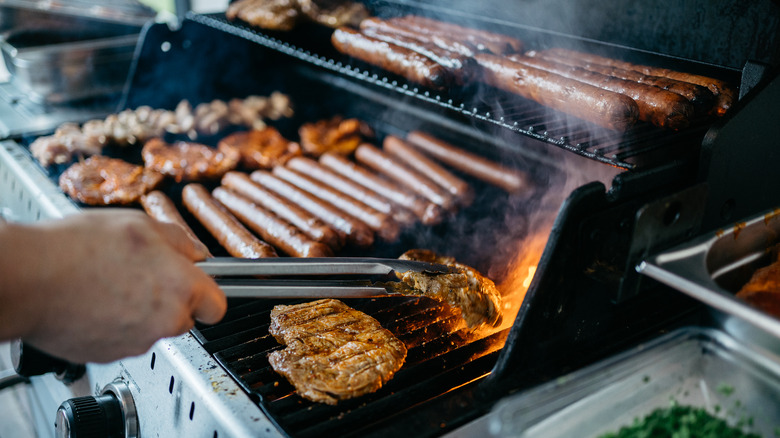Propane Vs Natural Gas: Which Is Safer For Your Summer Grilling?
One of the big debates among outdoor cooking enthusiasts is whether charcoal or gas is better for grilling. (Grill king Bobby Flay prefers grilling with charcoal for flavor, but propane grilling may actually be healthier.) What we sometimes forget, however, is there's another alternative to propane for those who like to grill by turning a knob: natural gas.
Propane and natural gas both cook food in a similar fashion, but there are some differences in how they provide heat. Which begs the question: Is one safer than the other? According to Silvio Correa of Silvio's BBQ, "Propane tends to burn hotter than natural gas, but safety depends more on the condition and setup of the grill."
Of course, there's the issue of what happens to the carbon monoxide produced by both types of fuel as they burn. The fumes from propane are heavier than the surrounding air, so they tend to stay closer to the ground. This can be hazardous if the area isn't sufficiently ventilated. Natural gas fumes are much lighter, by comparison. Unless you're indoors, they'll just rise up and float away. This can make for a safer situation as far as air quality is concerned.
Safety tips for gas grilling
Neither propane nor natural gas grilling needs to be hazardous as long as you take the proper precautions. As Correa advises, "A well-maintained grill of either type is safe to use." Propane comes in portable tanks while a natural gas grill is connected to your home's fuel line. In both cases, the grill is fed via a hose that needs to be maintained. "Always check for leaks and make sure connections are tight."
It's also important to have your grill set up in a safe area. "Grill outdoors in a ventilated space," says Correa. You should also make sure the grill isn't too close to the house (it should be at least 10 feet away). Don't grill near tree branches, deck railings, or overhanging eaves. Yes, this means that grilling on an apartment balcony is inadvisable unless your balcony is really, really large.
Having the proper equipment on hand is also a must. Correa recommends a spray bottle of water in case the grill flares up. If you want to be extra safe, a fire extinguisher and bucket of sand are good precautions. According to the National Fire Protection Association, gas grills caused roughly 9,300 home fires every year between 2019 and 2023. Between 2020 and 2024, more than 21,000 people were injured by gas grills. Don't let these statistics scare you away from cooking outdoors, but it's important to stay aware of the risks. One of the best ways to minimize risk, according to Correa, is: "Never leave the grill unattended." That way, if anything does go wrong, you can mitigate the damage right away.

